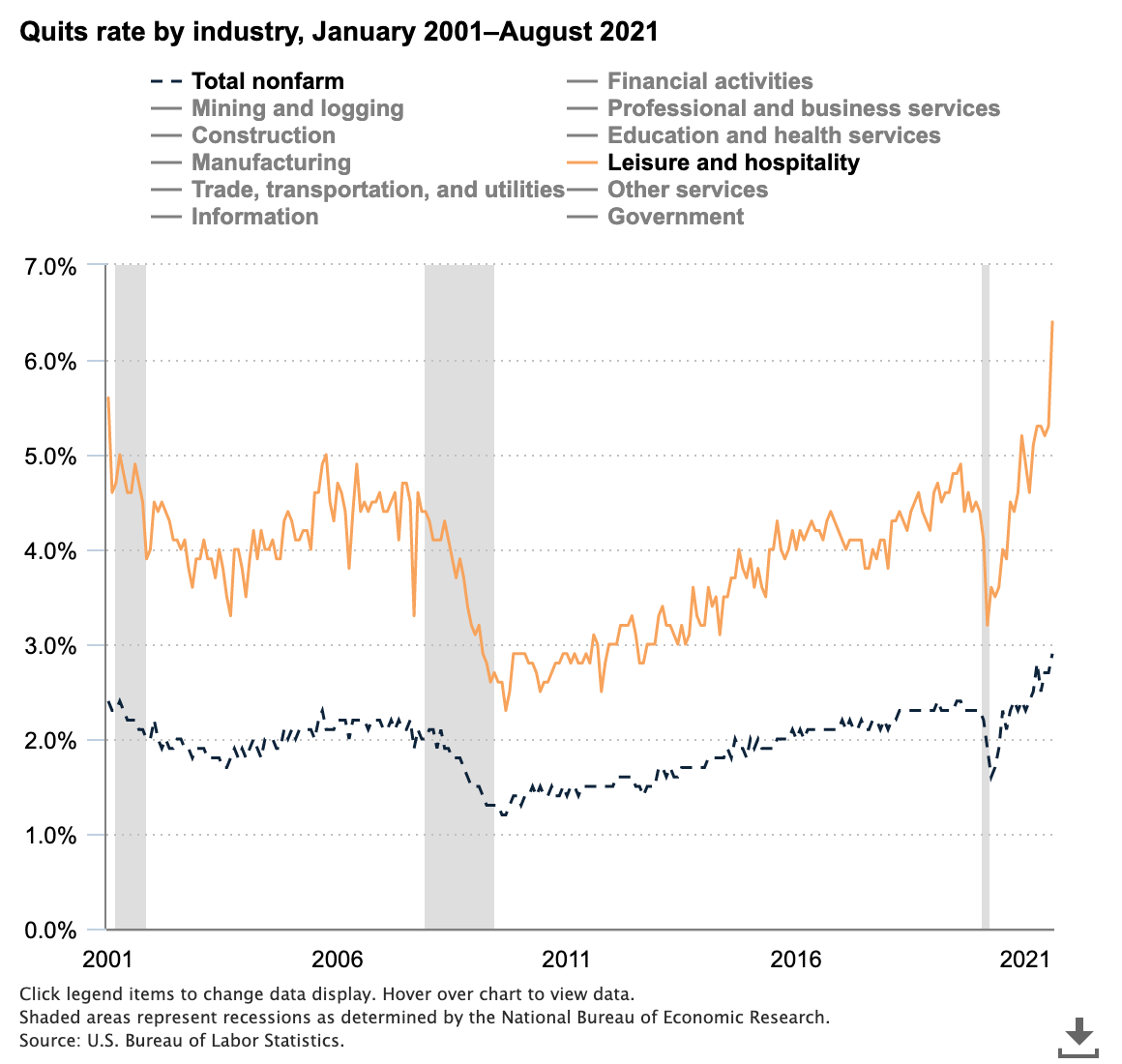Yes, millions of people are leaving their jobs but the picture is different across the world and there are still plenty of people looking for rewarding work.
May 20, 2022
Future of Work
Wellbeing
This article was authored by Christophe Catoir, President of Adecco.
The Great Resignation has been a dominant topic in the world of employment over the last couple of years. People are becoming so dissatisfied with work that they are quitting in their droves, and more still are planning to quit, goes the analysis. There’s plenty of truth in this. Between April and June 2021, more than 11.5 million Americans quit their jobs, with a further 4.5 million quitting in November 2021 alone [Source: Fast Company]

But the picture is more complicated than it first appears. We can see a Great Resignation underway in the US and the UK but not so much in the rest of Europe, where employees seem to have a different attitude. And even in the US and UK it isn’t true to say that people have had enough of work, more that they have had enough of particular kinds of work, at particular levels of pay.
Part of the geographical difference seems to be because employees and employers in the US and UK view work as more transactional. Employers tend to focus on wages as the way to optimise their offering and employees are quick to go elsewhere if they don’t feel sufficiently financially rewarded.
Changing the wages on offer changes the transaction considerably. For example, with our clients in the US we see that boosting the wage offered from $12.5-per-hour to $15 increases the number of applicants per vacancy from under 20% - or one candidate for every five vacancies - to 106%, or 1.06 candidates per vacancy. There’s less evidence of the Great Resignation in sectors with higher wages, such as healthcare and logistics, compared with sectors like manufacturing and retail.
In Europe, on the other hand, employment exhibits a greater ‘stickiness’. Employees may be contemplating a change but they are less inclined to hurry. They are more selective in where they work in the first place and look for more than just good wages. A strong work-life balance is more important. In fact, roughly a quarter of people leaving their jobs are going to a job that pays less because it offers something they value more, such as a better company culture.
This is a strong trend everywhere, even in the US and UK: employees are expecting more from their employers than just a good wage. They want to feel valued in other ways. Companies can demonstrate that by providing wellness programs or mental health support. This compounds the problem of the Great Resignation for companies that offer neither a good wage nor an appealing culture. They will really struggle to find people.
But employers shouldn’t despair. Though some employees have taken to early retirement or switched to self-employment, there are plenty who have simply responded to the upheaval of the past couple of years by seeking a positive change. To attract those people, organisations need a tailor-made recruitment plan.
At Adecco, Spain in particular, and other countries also, act as role models in this field – that should inspire us all. New recruits can benefit from onboarding bootcamps, are allocated 10 Mondays a year for training and can use the Adecco Group Internal University Digital Campus to keep learning. We consider it good practice to give new hires visibility of their next role and schemes like this should be more widely adopted. We are thus providing staff with skill-based learning journeys that help them plan for the next two-to-three years of their career.
All in all, two years of lockdown has much to do with The Great Resignation and the way employees are reconsidering the place work occupies in their lives. Turnover may have been reduced during Covid time, but the change was being catalyzed and the impact only postponed. The Great Resignation is not an employment crisis but an ensemble of mature, rooted, life-changing decisions.
Employees are looking for a good deal
Part of the geographical difference seems to be because employees and employers in the US and UK view work as more transactional. Employers tend to focus on wages as the way to optimise their offering and employees are quick to go elsewhere if they don’t feel sufficiently financially rewarded.
Changing the wages on offer changes the transaction considerably. For example, with our clients in the US we see that boosting the wage offered from $12.5-per-hour to $15 increases the number of applicants per vacancy from under 20% - or one candidate for every five vacancies - to 106%, or 1.06 candidates per vacancy. There’s less evidence of the Great Resignation in sectors with higher wages, such as healthcare and logistics, compared with sectors like manufacturing and retail.
In Europe, on the other hand, employment exhibits a greater ‘stickiness’. Employees may be contemplating a change but they are less inclined to hurry. They are more selective in where they work in the first place and look for more than just good wages. A strong work-life balance is more important. In fact, roughly a quarter of people leaving their jobs are going to a job that pays less because it offers something they value more, such as a better company culture.
The right job is about more than wages
This is a strong trend everywhere, even in the US and UK: employees are expecting more from their employers than just a good wage. They want to feel valued in other ways. Companies can demonstrate that by providing wellness programs or mental health support. This compounds the problem of the Great Resignation for companies that offer neither a good wage nor an appealing culture. They will really struggle to find people.
But employers shouldn’t despair. Though some employees have taken to early retirement or switched to self-employment, there are plenty who have simply responded to the upheaval of the past couple of years by seeking a positive change. To attract those people, organisations need a tailor-made recruitment plan.
At Adecco, Spain in particular, and other countries also, act as role models in this field – that should inspire us all. New recruits can benefit from onboarding bootcamps, are allocated 10 Mondays a year for training and can use the Adecco Group Internal University Digital Campus to keep learning. We consider it good practice to give new hires visibility of their next role and schemes like this should be more widely adopted. We are thus providing staff with skill-based learning journeys that help them plan for the next two-to-three years of their career.
All in all, two years of lockdown has much to do with The Great Resignation and the way employees are reconsidering the place work occupies in their lives. Turnover may have been reduced during Covid time, but the change was being catalyzed and the impact only postponed. The Great Resignation is not an employment crisis but an ensemble of mature, rooted, life-changing decisions.



